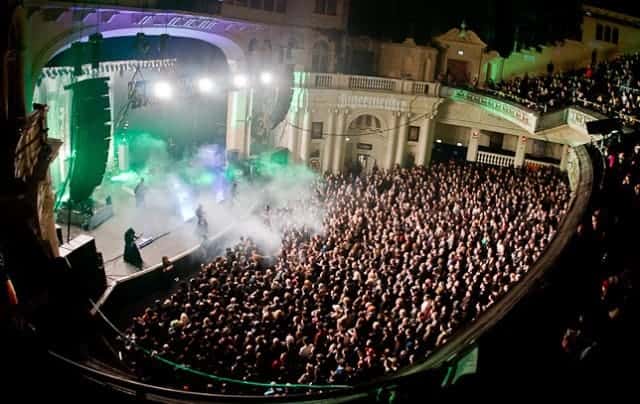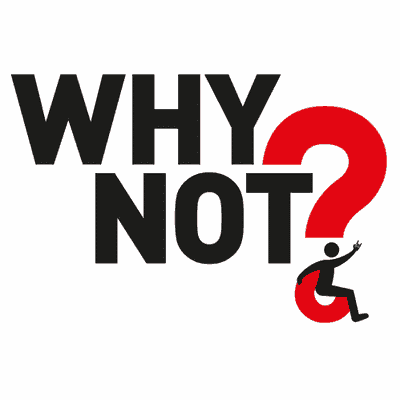Disabled music fans are back in the news and fortunately this time it’s not because they’ve found themselves unintentionally on the wrong end of an ill-conceived Kanye West rant. This week we’ve seen disabled people putting themselves in the news in order to both criticise and offer a solution to the terrible lack of disabled access at live music events (although it is noticeable that a well organised grass roots campaign around disability issues still doesn’t attract the same number of column inches that one ego-maniacal rapper can). It’s all part of a brilliant new idea to create a way for disabled people to enjoy going to gigs as much as their able bodied friends and fellow fans are able to.
Research has highlighted the dire state of access at live music. Although a degree of accessibility is now common at most live venues, it’s often a box ticking exercise and fails to provide real solutions. For instance, 77 per cent of young disabled people believe that booking tickets for a live music puts them at a substantial disadvantage to non-disabled people. Perhaps this is because fewer than 1% of seats (and often 0% of tickets in standing areas) at the UK’s biggest concert venues are accessible for wheelchair users? For this to be the case in the country’s biggest venues is really quite concerning.
We’ve reviewed a selection of concert venues on our website, but we have tended towards medium to small venues, assuming that the real powerhouses like the O2, Manchester Arena, the Barclaycard Arena etc would be more accessible due to demand, pressure on them and the fact that they’re not short of money to make alterations. It’s shocking to see how wrong that assumption was and how limited access is at all venues.
When we reviewed Concorde, Shepherd’s Bush Empire and the Hammersmith Apollo we found that all offer reasonable, but limited access. The second two were examples of a repetitive problem where disabled gig-goers are finding themselves isolated from the rest of the audience and often from the friends they came with. At far too many venues wheelchair users are prohibited from mingling with the rest of the crowd but must watch from a designated viewing platform. This separation obviously prevents disabled music fans from having the same enjoyable experience and doesn’t send a very inclusive message in any shape or form.
Things were worse at other venues, such as Brixton Academy where our reviewer found that “The 02 Academy ticks the majority of ‘access’ boxes, however, as is often the case, this does not translate smoothly into a fully inclusive, dignified experience…Unfortunately, the Academy operates a zero tolerance policy: prohibiting wheelchair users from mixing with the crowd and enjoying the arena. When I tried to get close to the stage, I was forced to return to the disabled viewing platform at the side of the pit and threatened with eviction if I did not comply; despite the fact I was not inebriated, am over the age of 21 and was covering the event for a music website.”
Similarly we found that at KOKO in Camden:”Wheelchair users are required to watch from the balcony and are unable (due to the myriad of staircases), as well as forbidden, to join the rest of the crowd on the dance floor. Watching other people have a good time is not my idea of fun”
One noteworthy exception is The Camden Roadhouse, where rather than isolating wheelchair users on a designated platform, they are ‘free to roam’ throughout the hall. Of course, this is can cut both ways as it might mean you don’t get the best view, but then that’s the case for everyone in standing areas at gigs, save for John Cleese, Peter Crouch and NBA Basketball players. The Roundhouse is fabulous venue which did a remarkable job of providing disabled access and maintaining its original Grade II* listed features when it was redeveloped in 2004-6. However, it is a rare exception to the usual problems which are leaving young (and old) disabled people feeling unequal and unable to attend the gigs they want to.
Step forward BBC Radio One DJ Jameela Jamil who has created a new music and events members club, Why Not People, to make music more accessible. The project is about getting music venues to put on gigs for disabled people and massive stars including Ed Sheeran, Coldplay and Mark Ronson are headlining a series of gigs to launch the company. It’s going to operate as a private members club for disabled people who can then invite able bodied friends to gigs. It’s a fantastic initiative to open up concert venues to all people whether disabled or otherwise and to give disabled people the full gig experience that they just can’t get elsewhere at the moment.
Why Not People membership opens on the 1st of February and is going to cost £15 per year. Alternatively there will be the option to pay £20 for a 5 year membership. A first concert in the Indigo at the O2 is on the horizon, as is a collaboration with yours truly at Blue Badge Style. We’re huge supporters of this exciting and pioneering project which Jameela Jamil has described as “a chance for us all to party with the people we should have partied alongside all along. With accessible venues, the finest talent on the planet, we promise to put on gigs, events and club nights that you will never forget.” It’s a message for music lovers that sounds well worth listening to!


